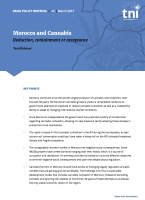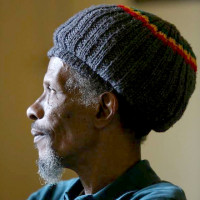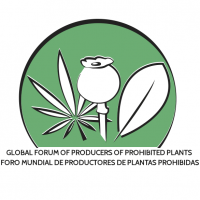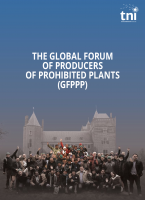Civil Society Statement on Cannabis in Morocco at the Commission on Narcotic Drugs
The following statement by Abdellatif Adebibe of the Moroccan Confederation of Associations for the Development of the Senhaja Rif Region, was due to be screened as a civil society contribution to a discussion on alternative development and development-oriented drug policy at an intersessional meeting of the Commission on Narcotic Drugs in Vienna. Abdellatif represented cannabis farmers at UNGASS 2016, following the meeting of the Global Forum of Producers of Prohibited Plants in Heemskerk, the Netherlands, organised by TNI.

Tessa Kersten-Zenger
Statement
For ages, cannabis was considered to be a legal economical product for national consumption coming from the Central High Rif, the historical producing region in the North of Morocco, until independence. The ancestral plant was traditionally used for recreational purposes, but also for industrial and medicinal ends, until Morocco signed the United Nations Single Convention in 1961.
From that moment on the growers had no alternative than to sell their produce to national and international trafficking organisations. The change in legislation had adverse effects on development in the affected region and caused a situation of repression and prosecution by national authorities. Innocent members of the community were captured and punished. Due to progressive abandonment by the state, the region fell behind in its socio-economic development and infrastructure, compared to other regions in the country.
>> To enable English subtitles, click on the Settings icon at the right bottom of the screen, select Subtitles/CC, and then English.
The video and statement were not screened, following an informal objection by a country delegation. The Transnational Institute and its partners are seeking clarification about the process leading to this decision. The importance of civil society voices in international spaces cannot be over stated. The decision to prevent this statement from being screened should not become a precedent.
Due to increased international demand for drugs, and a lack of efficient alternative development options provided by the state and international agencies, the cannabis growers are still suffering an unstable social situation where fear and uncertainty of the future prevail. The population of the historical cannabis growing region is not just affected by demographic and geographic factors, but growth is expanding to other areas with abundant land to meet this growing demand, which is met with new varieties of cannabis, imported from Europe.
For this reason we struggle against the cultivation of imported varieties that have been designed to produce high yields of cannabis resin and are destined exclusively for drug trafficking, and causing environmental damage.
Our proposal is to promote our national cultural patrimony, and our human resources in the natural environment of the historical growing region, including the legal exploitation of our ancestral and indigenous cannabis variety.



